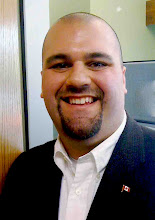Wow, thinking about my comment about the readings and questioning a point from Farkas and then going to the "Butler Wiki Ref"....I kind of take back my comment! After looking at the directory and browsing through and finding even student's personal entries about themselves, sort of user identification, wow'ed me! They really make it work. Then looking at the Wyoming author's wiki, that's kind of interesting also, and a neat idea. Great way to keep track of authors, their works, etc, and a good tool as a librarian to go to if anyone is ever looking for literature (of any kind on Wyoming!!).
As for the Princeton Public Library review site, I found it pretty neat, but I wondered if any user could add his or her comments to the books/reviews. Also what was neat with this site, if you clicked on the book, it brought you right into the catalogue, and you could see the item call number, location and if it was in or signed out.
The BizWiki is also interesting, however, when I saw the user list, I was surprised that it was so low (36). It made me wonder if students could not add to the wiki, and/or is the wiki limited to staff only for adding content? It is clear that the target audience is the university of Ohio: students, faculty, staff, and other library staff, etc. Overall, I like the chat widget that was added to the Main page, good idea/use of social software in an information tool.
Wednesday, June 13, 2007
Farkas is ahead of the game..
Farkas seems to be ahead of the game. She seems on top of uses, and has good practical examples of how Wikis can be used in libraries. Her suggestions are good, however one of them made me wonder how practical, or how serious would adding a wiki to a library catalogue be? Would students vandalize (ie: add junk/spam, etc) to the wiki/comment on books or would it be controlled, having all students/users log in and know who is writing what, and where. Part of the wiki ideology is that anyone should be able to contribute, no matter who they are, and "Wikipedia" has worked that way as anyone can create an alias and write about what they want. So how could you control who is writing in the wiki-catalogue/opac? However, Farkas seems to be on top of uses, and practicalities. When I did my coop with NRCan, we went through a lot of ideas and uses of wikis and I had read some material by Farkas a while ago, so I am not surprised to read these articles. Also, she has a book that has been long awaited (it might be out now) on Social Software in Libraries.
The Schiff article is also quite informative, and a good description of the history and progress of Wikipedia and the role that wikis can have in society. How information can be accessed, and added to a database, and also show how much information can be attained, when there seems to be no or very limited barriers.
The Schiff article is also quite informative, and a good description of the history and progress of Wikipedia and the role that wikis can have in society. How information can be accessed, and added to a database, and also show how much information can be attained, when there seems to be no or very limited barriers.
Subscribe to:
Comments (Atom)


